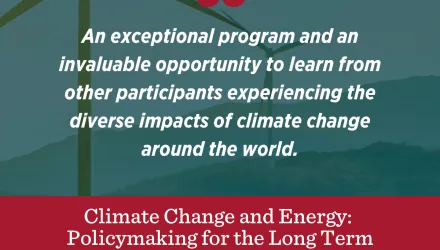This study examines the legal and regulatory barriers encountered in carbon capture and sequestration (CCS) research, development and demonstration (RD&D) projects under the U.S. Department of Energy’s (DOE) Regional Carbon Sequestration Partnerships Program. The study conducts a survey of 19 of the 25 Phase II geologic sequestration projects and examines two of these projects as case studies. The barriers encountered involved liability, consents, and permitting. They created challenges for small-scale RD&D projects that involve little risk, are in the public interest, and are essential to advancing our understanding of CCS if it is to contribute to mitigating climate change on a meaningful scale. To overcome these barriers, this study recommends the federal government adopt policies that provide a legal framework that supports CCS research, specifically a shield from property-related and long-term liabilities associated with sequestration for research organizations and other organizations supporting research; and government indemnity to protect and make whole property rights holders, parties granting consent to projects, and third parties who may be affected by CCS research. The study also recommends that the U.S. Environmental Protection Agency (EPA) consider simplified approval procedures under the Safe Drinking Water Act for small-scale research injections.
Hart, Craig A.. “Advancing Carbon Sequestration Research in an Uncertain Legal and Regulatory Environment: A Study of Phase II of the DOE Regional Carbon Sequestration Partnerships Program.” Energy Technology Innovation Policy Project, Belfer Center, January 7, 2009



